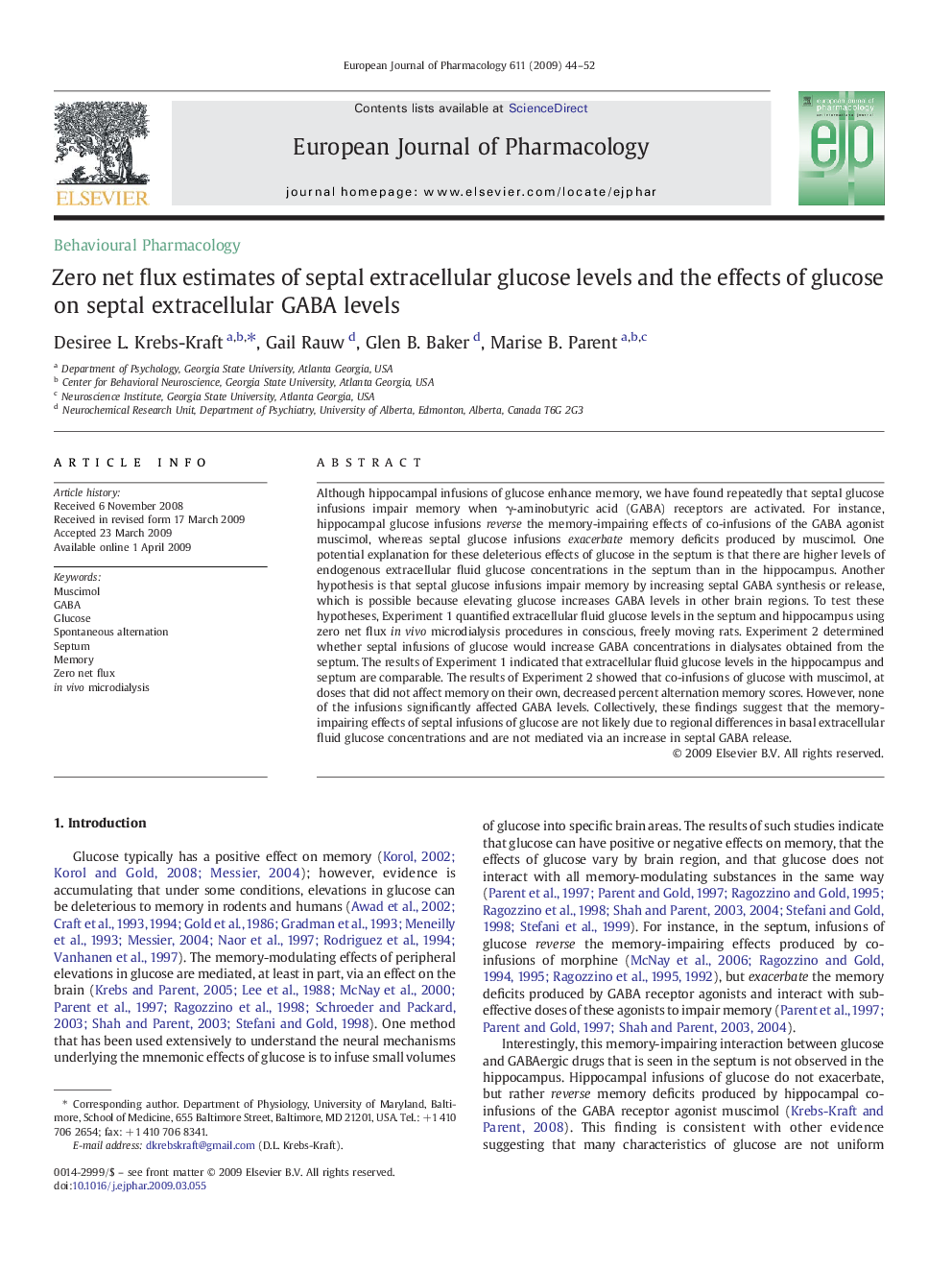| Article ID | Journal | Published Year | Pages | File Type |
|---|---|---|---|---|
| 2534310 | European Journal of Pharmacology | 2009 | 9 Pages |
Abstract
Although hippocampal infusions of glucose enhance memory, we have found repeatedly that septal glucose infusions impair memory when γ-aminobutyric acid (GABA) receptors are activated. For instance, hippocampal glucose infusions reverse the memory-impairing effects of co-infusions of the GABA agonist muscimol, whereas septal glucose infusions exacerbate memory deficits produced by muscimol. One potential explanation for these deleterious effects of glucose in the septum is that there are higher levels of endogenous extracellular fluid glucose concentrations in the septum than in the hippocampus. Another hypothesis is that septal glucose infusions impair memory by increasing septal GABA synthesis or release, which is possible because elevating glucose increases GABA levels in other brain regions. To test these hypotheses, Experiment 1 quantified extracellular fluid glucose levels in the septum and hippocampus using zero net flux in vivo microdialysis procedures in conscious, freely moving rats. Experiment 2 determined whether septal infusions of glucose would increase GABA concentrations in dialysates obtained from the septum. The results of Experiment 1 indicated that extracellular fluid glucose levels in the hippocampus and septum are comparable. The results of Experiment 2 showed that co-infusions of glucose with muscimol, at doses that did not affect memory on their own, decreased percent alternation memory scores. However, none of the infusions significantly affected GABA levels. Collectively, these findings suggest that the memory-impairing effects of septal infusions of glucose are not likely due to regional differences in basal extracellular fluid glucose concentrations and are not mediated via an increase in septal GABA release.
Related Topics
Life Sciences
Neuroscience
Cellular and Molecular Neuroscience
Authors
Desiree L. Krebs-Kraft, Gail Rauw, Glen B. Baker, Marise B. Parent,
